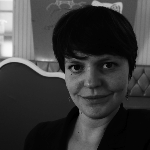
Crossing the threshold: an integrated approach to transformational change by Our Place On Earth
 Sean Foley May 11, 2014 05:30 |
Nuin-Tara and Tom,
The work you are planning and doing looks like it complements work Samdhana (www.samdhana.org) will be doing on community-based climate adaptation in SE Asia, primarily in Indonesia, Philippines and the Mekong region.
We're planning to start with pilot projects in some of the 700+ communities we have been working in during the last decade, as we want to make sure our approach and methods are suitable and accepted by the people in these communities. We'll most likely be using the methods developed by CRiSTAL, as it is a natural extension of DFID's Sustainable Livelihoods Approach (SLA)and, as the name suggest, focuses on livelihoods and ecosystems. Given how ambitious your project appears to be you may want to consider conducting pilot studies ahead of full-scale implementation? It may also be easier to gain funding if donors can see that you are already tackling the complex, practical field-level issues involved.
Let's make sure we develop an active communication to share what we're doing and see how we can learn from one another. You may also want to check with Katherine Vincent on what Kulima (http://www.kulima.com/)on what are doing in Africa - again lots of potential for collaboration.
You can contact me most easily by email |
 Nuin-tara Key May 14, 2014 12:00 | Proposal contributor
Sean,
Thanks very much for your feedback and resources. We will look them over and email you directly to discuss coordination in our work. Can you please send us your email address via info@prettygoodproductions.net?
Thanks again and looking forward to connecting.
Best,
Nuin-Tara
|
 Michelle Tigchelaar Jun 11, 2014 07:05 |
Hi Nuin-Tara and Tom,
This is a great proposal. Showcasing the positive success stories of communities that are adapting to climate change in an integrated fashion will provide practical suggestions for practitioners and be a great motivator for policy makers and global communities alike.
To improve the language and structure of your proposal, I would suggest that in the pitch and summary you focus more on your actual goals and plans, and less on the theoretical framework of climate justice. The main text of your proposal ("What actions do you propose?") provides a very detailed description of the problem at hand, and is well supported by references to the literature, but it might be a little too technical. Do you already have some examples from the case studies that you are exploring that you might reference here to illustrate your plans? I do not find the figure in the section on "other key benefits" to be particularly informative.
On a small technical note, in your list of actions in response to climate change as a justice issue, are the first two actions not exactly the same?
Best of luck with your project!
Michelle
|
 Gwyneth Myer Jun 17, 2014 06:32 |
Hi Nuin-Tara and Tom,
This looks like a great proposal and I'm interested to see what you develop. I recently completed a Climate Adaptation Plan for the Rogue Basin, Oregon. We are working on implementing components of the plan- including incorporating ecosystem services, community values, ecological values, and economic feasibility for projects. We have an integrated restoration approach we are looking to apply to federal land management as well, which brings in a variety of issues and creates a mosaic of management that considers endangered and threatened species, fire risk and fuels reduction, small diameter focused thinning to reduce the extreme fire risk we have here that is exacerbated with climate change, while leaving legacy and old growth trees. We're holding a workshop the end of July to get a better sense and understanding of the ecological integrity of the system and where the public's values are prioritized to better define how and where to focus our work; all of which will be considering climate change implications upon those values (ecological, social, and economical). If this is a project of interest to you for a pilot or your film, please contact me. Best of luck to you in your work!
Gwyn
gwynmyer@gmail.com
|
 Felipe De Leon Jun 17, 2014 09:04 |
Hi Nuin and Tara,
Have you been able to make any progress in developing budget estimates for the different components? This seems to be a very interesting proposal and I would be very interested in understanding the financing requirements for a project of this type.
|
 Neha Mittal Jun 18, 2014 02:02 |
Dear Nuin-Tara and Tom,
The proposal looks very interesting. However, I would suggest to explicitly mention how you actually plan to integrate community participation in your work and who will be the stakeholders?
Based on my experience with participatory approaches for prioritizing adaptation options, it is at times difficult to convince stakeholders to actively participate in such discussions.
To involve locals, it is necessary to understand their way of life and propose adaptation options that are not alien to their current social set up and rather should be link to local ecosystems.
I look forward to learning more about your specific case studies, whenever they are formalized.
All the best with the project.
Neha
|
 Michael Brown Jun 18, 2014 03:27 |
Thank you for submitting this proposal. The approach reminds me of work done by and with Aboriginal peoples in Canada. I have some suggestions and comments:
1. I agree with @mt but would actually go a step further in saying that the highly academic approach to writing the proposal actually detracts from it. It is clear that you have a very solid theoretical basis and that you are familiar with the subject matter; however, you don't talk about what you're planning on doing in the summary and there is no budget or finalization of case study region(s). These elements are critical in a proposal.
You develop your argument well but it felt like an academic paper at times. By all means support your argument with citations, but don't let them obscure what you are actually proposing.
2. I didn't always understand how the two deliverables (the toolkit and the film) were intertwined; at times it felt like reading two parallel proposals. Both are very interesting and also a huge amount of work. I can see how they relate to each other but I think that could be shown more clearly.
3. The content in the 'Where will these actions take place?' section do not support your project timeline. If you are planning on beginning field research in July 2014 this section needs to be further developed.
4. The deliverables are stated clearly. The project goals however are not really measurable. Consider how to rephrase to be SMART: specific, measurable, attributable, realistic, and time-bounded.
5. I'm a little bit wary of the strong, 'definitive' language used in the explanation of the toolkit, e.g. '2. A "how-to" guide identifying how to replicate...' Well, you can't necessarily just extrapolate your findings in the Caribbean to Sahel, or to another place altogether. Rather it seems like you will be analyzing strategies that worked (or didn't work) in particular places at particular times. I guess my point is that, with the way its worded, you run the risk of generalizing.
6. The lack of even an order-of-magnitude estimate really hurts the proposal, particularly when juxtaposed with the strong academic nature of the proposal. In particular, the field research is going to require a huge amount of logistical support and you should demonstrate that you have planned for it. If you have specifics with respect to grants that would be good. The 'run fundraising campaign' bullet is a little nonchalant but this could be a lot of work.
Please don't take my comments too harshly, I enjoyed reading this proposal and I hope you will be able to implement your plans.
Best of luck,
Mike
|
 Angélica Lara P.r. Jun 19, 2014 11:53 |
Hi,
Thanks for your submission, this is a great proposal, but i have to comments that maybe could help you.
I would like to understan how are you planning to integrate the society... trough workshops or anything else?
Good luck wit your project, hope you can develop it.
Best regards
|
 Nuin-tara Key Jun 20, 2014 02:41 | Proposal contributor
Thank you all for your insightful feedback and comments.
We are working to update and revise our proposal, based on your input, and we will provide an updated version soon.
We will also respond to each of your questions directly.
@Gwyn, we are interested in connecting on your work in Oregon will respond to you directly via your email - thanks for reaching out.
Thank you again!
Nuin-Tara & Tom
|
 Sardar Mohazzam Jun 20, 2014 04:54 |
Hello Nuin-Tara and Tom - You got really interesting and thoughtful comments. Looking forward to your updated proposal. I believe a lot has been said about the proposal. I hope something more refined will be coming soon! Best of luck!
Best
|
 Carolina Collaro Jun 20, 2014 04:33 |
Hi.
from the two part of this interesting project, I find very useful the film-documentation even if is an idea already utilized from other.
A toolkit will provide practitioner’s insight on how to better support communities in their climate change adaptation efforts and explore the value of an intentionally integrated approach to community-based and ecosystem-based adaptation.
A feature-length documentary will capture the stories of people transforming their communities by improving resilience, overcoming injustice, and building the foundation for durable solutions to climate change.
regarding the toolkit it is a sort of management implementation, then I would articulate it exactly like a management-plan, with defined objectives and priorities and evaluation criterions about the efficiency during the time.
|
 Nuin-tara Key Jun 22, 2014 09:28 | Proposal contributor
Thanks again to all for your constructive and helpful feedback. We have made many adjustments in response and provided additional information for the areas (budget and case studies) where we were lacking. Below is a brief, but direct response to each of your comments/questions. Please let us know if you have follow-up questions or feedback.
@mt – Michelle
1. Thank you for your input about readability and technicality - we have shifted our approach with the summary to more directly focus on what we plan to do and why, and move away from the theoretical background.
2. We have provided more details on what we plan to do, as well as brief descriptions for our initial case studies (see "where will these actions be taken").
3. Thank you for catching the typo in the "actions" section - you are right, they were the same and probably the result of a copy and past issue. Given all our changes we have removed these as discrete bullets and incorporated these points into the text of the document.
@gm – Gwyn
1. Thanks again for your interest in connecting - as I mentioned earlier, we will send you an email directly to further the conversation.
@felipe_deleon
1. Thank you for your input. We have updated the proposal with our budget estimate (I'll cover this in more detail in my response to @Michael_Brown).
@nehamittal – Neha
1. Thank you for your questions about how we plan to approach community participation & stakeholders. This is something we have spent a large amount of time thinking about. Our project is primarily focused on understanding and documenting successful community-based climate adaptation efforts (with the exception of the media training workshops). We are not planning to facilitate community prioritization or implementation efforts, so our approach to engagement and participation are not designed as large stakeholder facilitation or decision-making processes. Therefore, while we completely agree with your perspective about the difficulties of participatory approaches for prioritizing adaptation options, this is somewhat outside the scope of the project we propose. We are going to be working with community organizations and leaders who have already engaged their local communities and documenting the dynamics of these processes.
2. We also agree with your point that "to involve locals, it is necessary to understand their way of life and propose adaptation options that are not alien to their current social set up and rather should be link to local ecosystems". This further reinforces our desire to work with community partners already a part of, or trusted by, local communities. We are not going to be proposing adaptation options as outsiders to any community we visit/work with.
3. We are happy to share our research, findings and experience with anyone who is interested. We will be documenting our process and progress on our website (www.ourplaceonearth.org), as well as through a partnership with an online magazine, www.ensia.com.
@Michael_Brown – Michael Brown
Thank you for taking the time to provide such thoughtful and thorough feedback - it is very helpful.
1) Similar to my response to @mt, we have revised the proposal to be less academic and technical and get right into the project and what we propose to do.
2) In terms of the relationship between the deliverables (film and toolkit), we hope that the revised proposal clarifies this, but as a quick response: The deliverables are in some ways parallel projects, however not entirely. While they are focused on the same case studies, they are really telling two sides of the same story. The film is intended for a general audience and the toolkit is intended for a more narrow audience (practitioners and communities already active or interested in climate change work). By focusing on two difference audiences and through two different mediums, this means we will be presenting different types of information about the same projects (film = human stories and narrative; toolkit = technical and practical information about what lead to successful implementation). However, they are not completely "parallel" because they are working toward the same goals (changing the climate change narrative and providing information on a way forward).
3) We have provided more information about our case studies, which hopefully allows for the timeline to better support our proposal. We will be conducting field research for the next 5-6 months (starting in early July), documenting and exploring the case studies we include in the proposal (additional information in our budget as well). We have considerably more information on the case studies and partner organizations, but are not able to include these in the proposal (given space limitations).
4) Thanks for your input on the project goals. Hopefully our revisions address your comments.
5) Your input on the toolkit language was very helpful - I agree with your point about the risk of generalizations, which is not our intent. You said it perfectly when you rephrased this section to describe the analysis of strategies that worked (or didn’t). We do intend to provide information to communities and practitioners who want to learn from these practices and cases, but not step-by-step directions or generalizations.
6) As I mentioned to @Felipe_deleon, we have provided an overview of our budget for both Phase 1 of our project (field research, film production and workshops) and have provided an estimate for Phase 2. We do not have a discrete figure for the next phase, because it will be somewhat dependent on how production and research goes. We are indeed looking for partners who may be interested in participating in the second phase of the project (editing, postproduction, distribution). We are also pursuing grants to fund this second phase of the work. In regard to your comment about a fundraising campaign, we just recently completed a successful crowdfunding campaign to support the Phase 1 budget needs, and now are definitely aware of the time and energy it take to run a campaign (glad that's over!).
Please let me know if you have any other follow-up questions and thanks again!.
@AngelisaLPR
Please see my response to @nehamittal above, but to respond directly, we are planning on engaging local communities in our research directly. We will be working through community leaders and local organizations to connect with community members that are both engaged in the climate change adaptation projects, as well as beneficiaries. Since we are not proposing new projects, but rather documenting the characteristics that have led to successful implementation of existing projects, we are not focused on participation as a decision-making process. We do, however, hope to engage a broad stakeholder base in each community we visit. We will also provide workshops on low-cost filmmaking in a number of communities we visit - we will be working with existing local organizations to help facilitate these.
@mohazzam
1. Thanks for your support - hopefully our revised proposal successfully responds to the feedback we received.
@carolinacollaro
Toolkit approach
1. I like your comparison of the toolkit as a management approach, since the toolkit will include detailed information on each case study around the project objectives, priorities and evaluation approach. The toolkit will also provide a synthesis of the common characteristics between case studies, as well as the unique attributes.
Thanks again!! Please let us know if you have any follow-up questions or comments.
|
 Sergio Pena Jul 19, 2014 01:18 |
Excellent initiative. Take a look on the Convention on Biological Diversity about sharing the benefits from the traditional knowledge the work on this knowledge based in local communities and indigenous people.b.- Be aware of case studies in Chile, particularly on sea rising fro the simple reason that like Japan we have every 60 years and 8.0 and above earthquake. You might take a look on the situation in 2010 as well as 1960, 1881, and 1830 (take a look on Charles Darwin Diary). c.- Be aware of the position and interest of communities around the world. AS pointed out before they would like to share their knowledge but for a benefit.d.- Take into account legal reforms in locla and national as well as international legal rules. Next year a new Summit on an international treaty related to Climate Change will ocurred. You never know but this ideas compiled in a film might give technical advice to develop new rules on the subject. Finally, if you need help on the case studies just communicate or the legal development of the subject let me and us know. Best.
|
 Climate Colab Aug 6, 2014 08:15 |
The Climate CoLab adaptation contest team appreciates the time that you took to submit this proposal. You’ve done a lot of background research and a good analysis, but there is room for improvement on the ‘plan on work’ and value proposition components of your proposal. There are many existing attempts like this, some of which have been successful. You could strengthen your proposal by conducting an analysis of why some are not successful and providing an argument for how to address those shortcomings. There remain a lot of questions around why cross-contextual information sharing is key – provide a stronger justification to the value-added here. Stronger justification is also required for the localities chosen, and how the documentary will create a setting in which differences in each localities can be discussed and worked out. Please provide clarity around the toolkit – what it contains, how it will be used and by whom, how it will build local capacity for collective risk management, and how it is different than what is already distributed worldwide by ICLEI. Finally, you may want to reconsider how you integrate and present the media training piece. All in all, this is a good starting point. The judges encourage you to consider these factors and keep evolving your idea. While your proposal is not advancing to the semi-finals this year, the contest team wishes you the best of luck in your endeavors and would love to see a proposal from you next year incorporating this feedback.
|